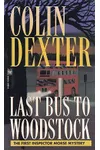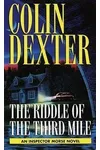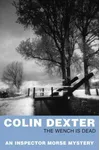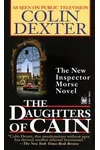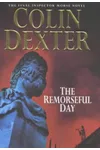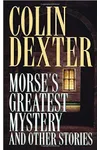Step into the shadowy, cerebral world of Inspector Morse, where Oxford’s dreaming spires hide dark secrets and intricate crimes! Colin Dexter’s beloved crime series, spanning 13 novels, follows the brilliant yet flawed Detective Chief Inspector Morse as he unravels complex mysteries with his sharp intellect, love for classical music, and a pint of real ale. Blending wit, puzzle-like plots, and profound human insights, this series has captivated readers and inspired iconic TV adaptations.
Whether you’re a fan of detective fiction or simply crave a story that challenges your mind, Inspector Morse delivers a richly atmospheric journey through Oxford’s criminal underbelly. Let’s explore the origins, heart, and lasting legacy of this masterful series.
How Inspector Morse Began
Colin Dexter, a former classics teacher, created Inspector Morse in 1975 with Last Bus to Woodstock. Stranded on a rainy holiday, Dexter began writing to pass the time, crafting a detective inspired by his love for crosswords and Sherlock Holmes. Oxford, with its historic charm and academic intrigue, became the perfect backdrop. Dexter’s Morse—named after a crossword clue—was a cerebral loner whose flaws made him deeply human. The novel’s success sparked a series that ran until 1999, earning Dexter multiple awards.
The Heart of Inspector Morse
The series’ 13 novels are a treasure trove of intricate plots and vivid characters. Last Bus to Woodstock (1975) introduces Morse investigating a young woman’s murder, setting the tone with its clever twists. The Dead of Jericho (1981) sees Morse entangled in a suspicious suicide, blending personal drama with detective work. The Riddle of the Third Mile (1983) explores academic rivalries and a gruesome discovery, while Death Is Now My Neighbour (1996) tackles betrayal in Oxford’s elite circles.
Dexter’s novels shine through their themes of human frailty, intellectual pursuit, and morality. Morse, a Wagner enthusiast with a penchant for cryptic crosswords, is both brilliant and flawed—his grumpiness, romantic missteps, and drinking habits make him relatable. Oxford itself is a character, its colleges and pubs steeped in atmosphere. The prose, laced with wit and literary references, invites readers to solve the mystery alongside Morse and his loyal sergeant, Lewis.
The series’ puzzle-like structure and psychological depth set it apart in crime fiction. Each book is a standalone case, yet Morse’s personal growth weaves a subtle thread, rewarding longtime readers with emotional resonance.
Why Inspector Morse Resonates
Inspector Morse’s legacy endures through its intellectual rigor and emotional depth. The series redefined detective fiction by prioritizing character over action, influencing writers like Ian Rankin. Its ITV adaptation (1987–2000), starring John Thaw, brought Morse to millions, spawning spin-offs like Lewis and Endeavour. Fans cherish the novels for their timeless exploration of human nature and Oxford’s evocative setting.
Today, the series remains a touchstone for crime fiction lovers, its blend of highbrow and heartfelt storytelling inspiring new generations. Dexter’s creation proves that a good mystery engages both the mind and the soul.
About Inspector Morse
- Publication Years: 1975–1999
- Number of Books: 13 novels
- Author: Colin Dexter
- Awards: Multiple Crime Writers’ Association Awards, including Gold and Silver Daggers
Ready to unravel a mystery with Oxford’s finest? Grab Last Bus to Woodstock and dive into Inspector Morse’s captivating world of crime and cleverness!
